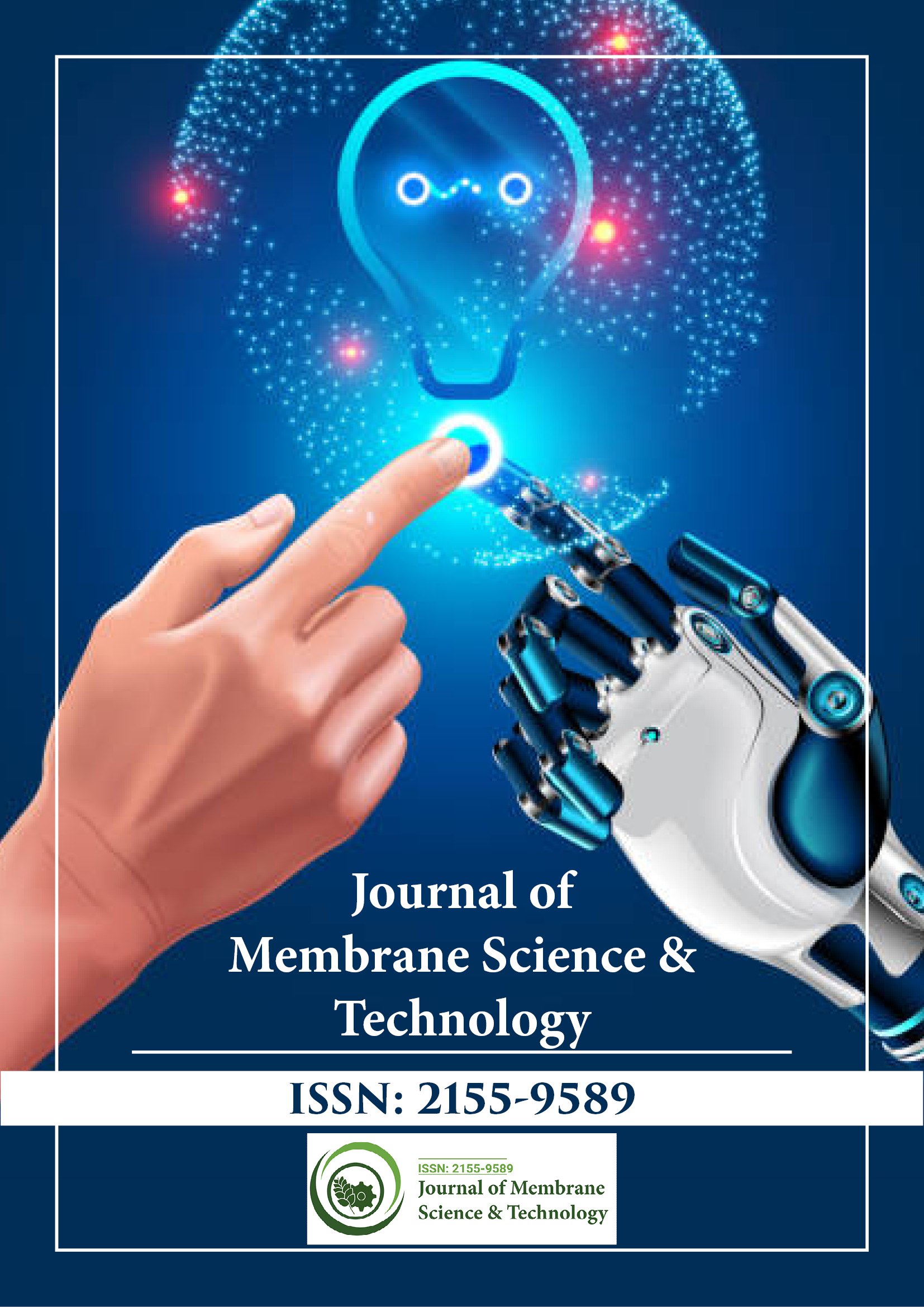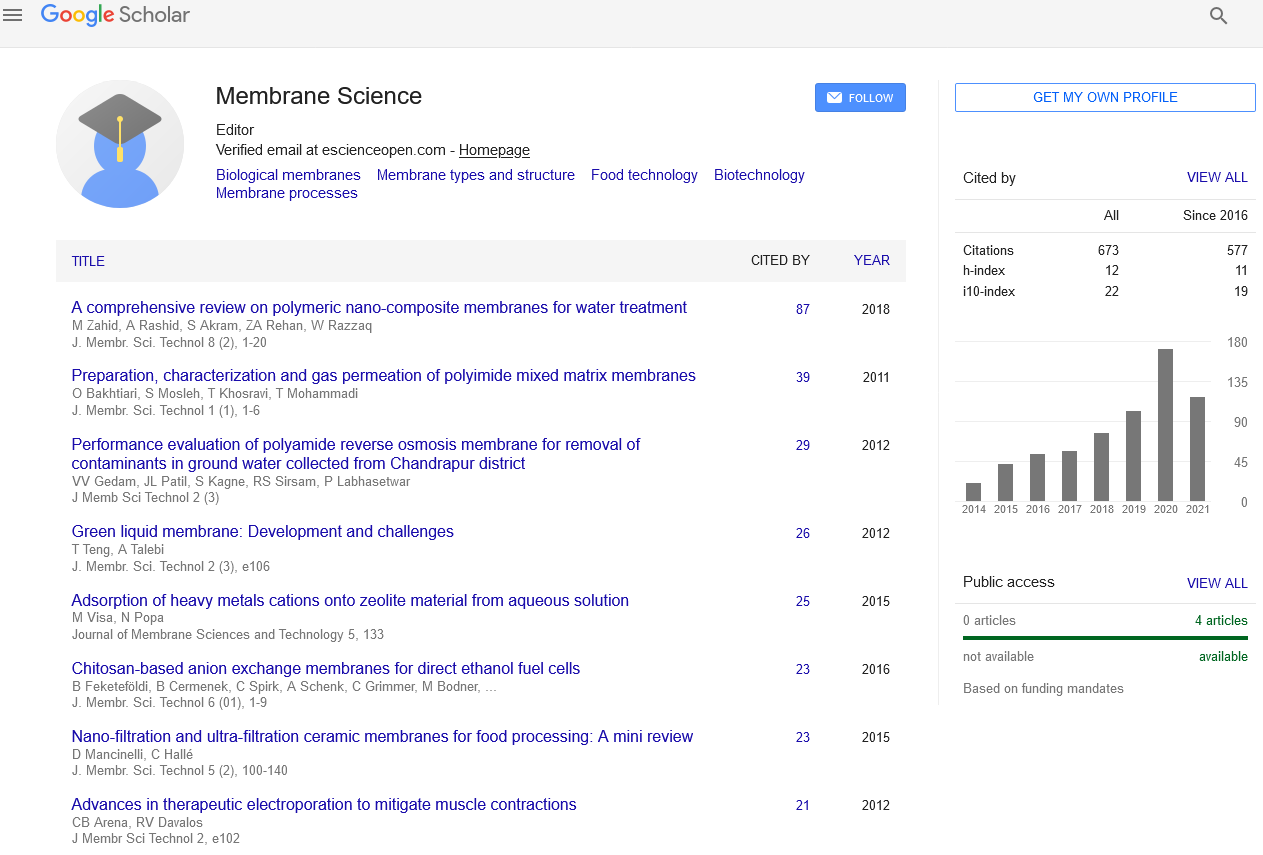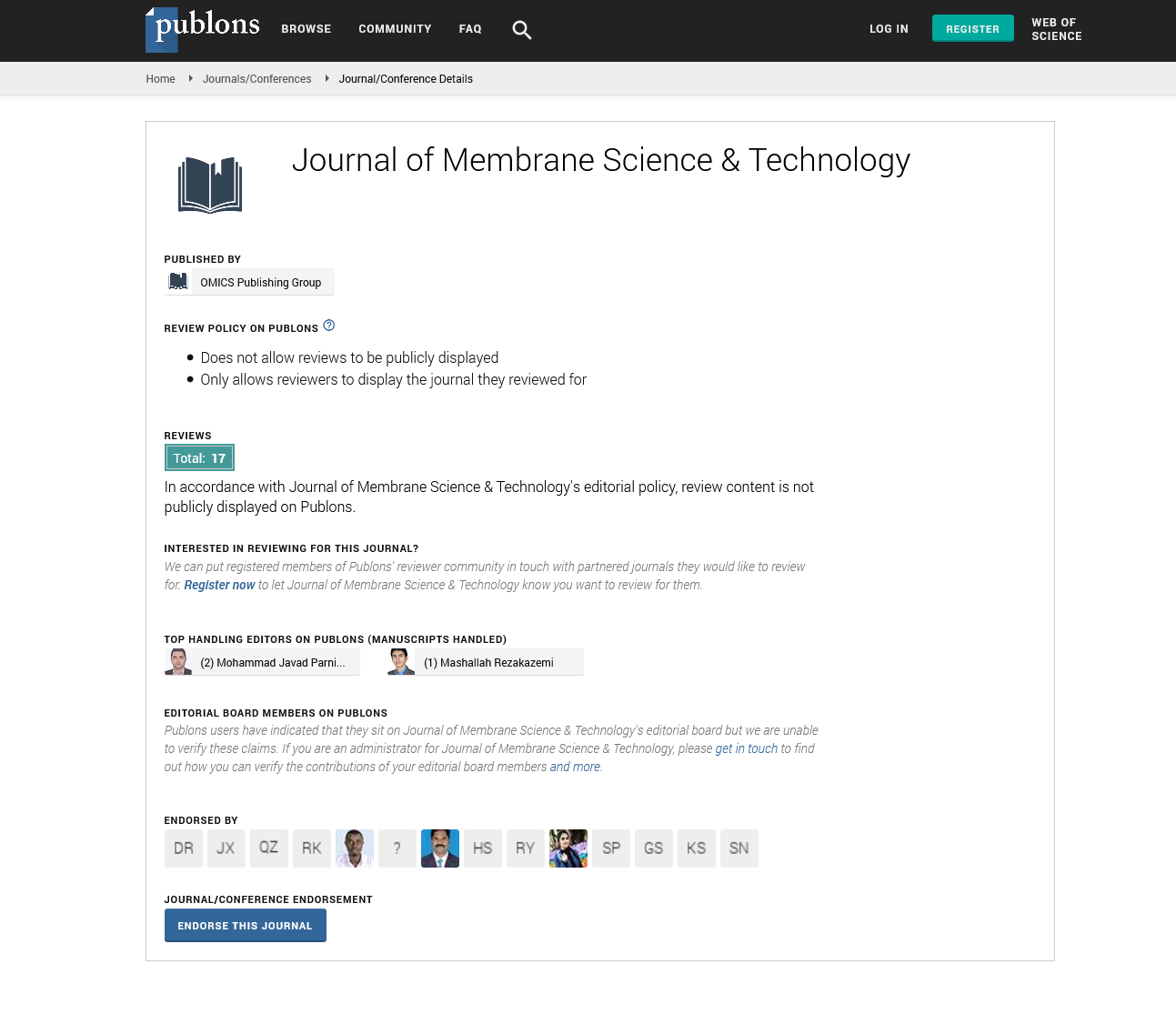Indexed In
- Open J Gate
- Genamics JournalSeek
- Ulrich's Periodicals Directory
- RefSeek
- Directory of Research Journal Indexing (DRJI)
- Hamdard University
- EBSCO A-Z
- OCLC- WorldCat
- Proquest Summons
- Scholarsteer
- Publons
- Geneva Foundation for Medical Education and Research
- Euro Pub
- Google Scholar
Useful Links
Share This Page
Journal Flyer

Open Access Journals
- Agri and Aquaculture
- Biochemistry
- Bioinformatics & Systems Biology
- Business & Management
- Chemistry
- Clinical Sciences
- Engineering
- Food & Nutrition
- General Science
- Genetics & Molecular Biology
- Immunology & Microbiology
- Medical Sciences
- Neuroscience & Psychology
- Nursing & Health Care
- Pharmaceutical Sciences
Taurine extraction from waste seafood canning using membrane processes
International Conference on Membrane Science and Technology
September 11-12, 2017 | Paris, France
Beatriz Cancino-Madariaga, Paula Pinto-Villegas and Ximena Romo
Universidad Técnica Federico Santa María, Chile
Posters & Accepted Abstracts: J Membra Sci Technol
Abstract:
Taurine (Tau) is an organic acid with antioxidant properties. There is a special interest in the cosmetic industry in the use of Tau obtained from natural sources, including seafood. In this study, membrane processes were used to separate and concentrate Tau from seafood canning industry wastewater. For this, the first step was the treatment of the seafood wastewater to separate big particles, oil and shells from the original liquid. The recovery of Tau in this phase was near 75%. In a second step, we applied microfiltration (MF), followed by ultrafiltration (UF) and nanofiltration (NF) processes using ceramic membranes. Two pore sizes were assayed for MF: 0.45 um and 0.2 um. The cut off for UF ceramic membranes was 1 kDa to separate allergenic proteins such as tropomyosin (38 kDa) that could be present in the juice. Tau is not retained by UF membranes, since the size of this molecule is approximately 125 g/mol. Consequently, NF membranes should be used to retain Tau and separate it from the salts present in the remaining seafood juice. Six types of NF membranes were tested. The final steps in the flow-sheet were sedimentation, pasteurization, grow filtration, MF (0.2 μm), UF (1 kDa), and NF. The results showed that MF retains all the turbidity and Tau permeation is directly proportional to the volume in the permeate. The UF process retains the proteins, and the permeation of Tau depends mainly on the permeate volume. Consequently, more permeate reflects higher Tau recovery. NF process also retains salts with high MW, and the high concentration of small ions enables the use of the concentrate obtained directly in cosmetic products. Thus, further dilution with water was necessary, followed by a second NF process, reaching Tau retention of nearly 65%.
Biography :
Beatriz Cancino-Madariaga is Biochemical Engineer and obtained her Doctorate degree in Mechanical Engineering in a Sandwich Promotion between TU Munchen (Germany) and Universidad Técnica Federico Santa María (UTFSM) in Chile. She was the First Woman to obtain the Dr Ing degree at the UTFSM Chilean University. She did a short stay in TUHH (Germany), in Verfahrenstechnik Department where she worked with membranes. She has worked 12 years as Full Professor in Food Engineering School at the Universidad Catolica de Valparaíso (Chile), working in Membrane Processes. Later on, she founded her own Consulting and continued teaching at the UTFSM and Universidad de Chile and has given lecture for pre and post-grade students and also those doing project related with membrane processes.


